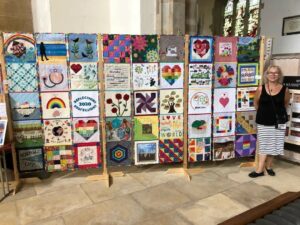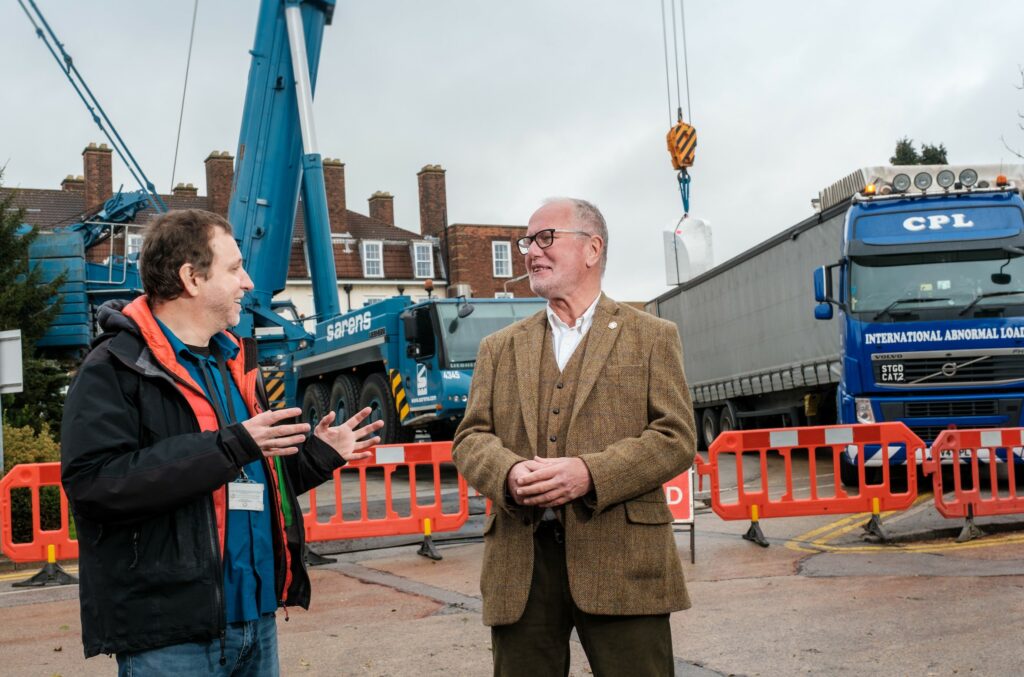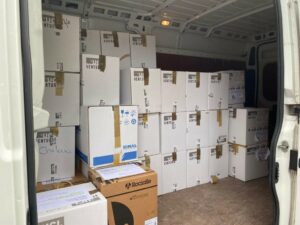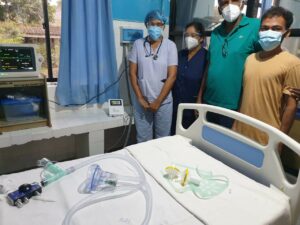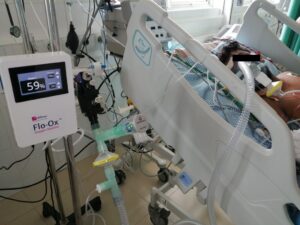A much-loved sculpture created by a popular local artist is set to bring comfort to patients after finding a permanent home at Castle Hill Hospital.
The life-size creation, fondly named ‘Arthur’, was created by Jill Atley, who passed away from brain cancer at the age of 64 in February 2020.
Jill’s last wish was for Arthur be placed at the Queen’s Centre for Oncology and Haematology to welcome visitors and bring comfort to patients and their friends and family.
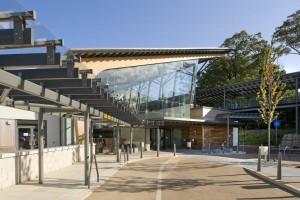
The Queen’s Centre at Castle Hill Hospital
At her request, Hull University Teaching Hospitals NHS Trust has made a donation to Yorkshire Cancer Research in return for the opportunity to host the sculpture. Jill supported the charity for nearly 40 years as a member of the charity’s Driffield Volunteer Group.
Jill’s husband Noel said: “I’m delighted that we have been able to fulfil Jill’s final wish for Arthur to be permanently installed at the hospital where she was treated. Jill wasn’t very fond of hospitals, even though she was in a lovely ward and being well looked after.
“She thought that Arthur would be a good way of bringing a little joy into what might be, for many, an overwhelming experience when entering the Queen’s Centre for the first time. We hope that families, who may be facing uncertain and emotional times ahead, are able to take comfort from being able to sit and chat with Arthur.”
Described as “bringing love, laughter and a shining talent into all our lives”, Jill developed a passion for sculpting while at university, which began with detailed depictions of East Coast fishermen. Due to the high quality of the work she produced, Jill began receiving commissions, which she completed “to perfection”.
Among her notable pieces is a sculpture created to commemorate the Cattle Market in Beverley following the building of a Tesco supermarket on its former site.
‘Arthur’ was first created for an exhibition at Newby Hall and was viewed and enjoyed by more than 40,000 visitors to the country house during the summer of 2019. He was modelled in clay before being cast in bronze resin and then hand finished.
After Jill’s death, the sculpture was displayed at St. Mary’s Church in Beverley, where her funeral took place.
Noel said: “After the Tesco relief, Jill was always looking to the next big job. She was continuously improving her work and treated each piece as a new challenge. She eventually graduated to life size pieces, and Arthur was the last one.”
Sculpting allowed Jill to pursue other passions in life, such as sports and teaching. She taught art to students with learning difficulties and was an accomplished sportswoman, having played tennis, golf and squash competitively and playing tennis for Yorkshire in her youth.
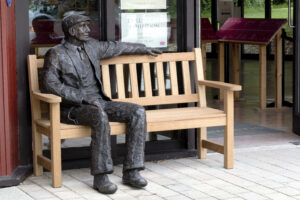
Arthur at Newby Hall
Noel added: “Her sculptures schedule allowed Jill to enjoy the sports that she loved. She led a full life, and sculpting was always high up on the list. She had a powerful sense of fun and a very generous nature.”
Alongside bringing up three daughters, Jill dedicated a huge part of her life to raising funds and awareness for Yorkshire Cancer Research. She first joined the Driffield Volunteer Group in 1984, following Noel’s diagnosis with cancer just one year after their marriage.
Noel said: “During this period, she became aware of the need for funds to invest in the diagnosis and treatment of cancer. She really loved that the money raised at Yorkshire Cancer Research stayed in Yorkshire and benefited people in the region.”
Jill’s commitment was recognised when she was invited to Buckingham Palace to acknowledge 30 years’ service of volunteering.
Her friend Liz Pexton, a long-standing member of the Driffield Volunteer Group, said: “While she brought her humour to the meetings, she was a very constructive and dedicated member of the team, helping to increase the profile of the charity locally and to raise more than half a million pounds.”
Following Jill’s own diagnosis with incurable brain cancer in November 2019, she spent the time she had left making memories with her friends and family and continuing her work. Learning that her daughter Katherine was expecting a child brought her joy in her final days.
Noel said: “Underlying her optimistic and fun approach to life, Jill always had an understated but nevertheless gritty, determination and courage. She really had to draw upon this when facing the very sudden and devastating diagnosis. She knew there was no escape, but seemed to accept the situation, stoically and without resentment, to the very end.
“She was overjoyed and delighted when she discovered Katherine was expecting, although she knew she would never meet her grandchild. He is now with us and is named Jack Arthur in tribute to his grandmother’s work.”
The installation of Arthur complements Hull University Teaching Hospitals’ arts programme, Flourish. This programme is supported by the hospital charity, WISHH, whose Board of Trustees gave approval for the installation of Arthur at Castle Hill. Flourish recognises that the arts and creative approaches throughout our hospitals can keep people well, aid recovery, and help meet major challenges including long-term conditions, loneliness and mental health issues.
Director and WISHH trustee, David Haire, who leads on Flourish, said: “I had the pleasure of working alongside Jill regarding her work and we were exploring the possibility of featuring a sculpture at our hospitals. Arthur is a fantastic addition to the Queen’s Centre, a truly striking sculpture.”
Chris Long, Chief Executive at the Trust, said: “It was our privilege to have been able to care for Jill in her final days and weeks, and it’s an honour to have her last work, Arthur, permanently reside with us now. I have no doubt that he will serve as both curiosity and comfort to patients and visitors to the Queen’s Centre for many years to come.”


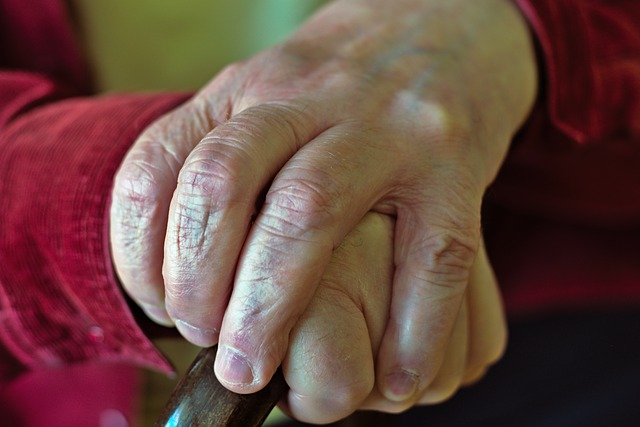
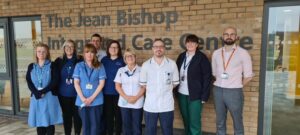 The team, based at the Jean Bishop Centre in East Hull, was also named winners of the “Innovation in Practice” by the network, which has 7,000 members and is seen as the driving force behind improvements in the care of people with Parkinson’s and frailty.
The team, based at the Jean Bishop Centre in East Hull, was also named winners of the “Innovation in Practice” by the network, which has 7,000 members and is seen as the driving force behind improvements in the care of people with Parkinson’s and frailty.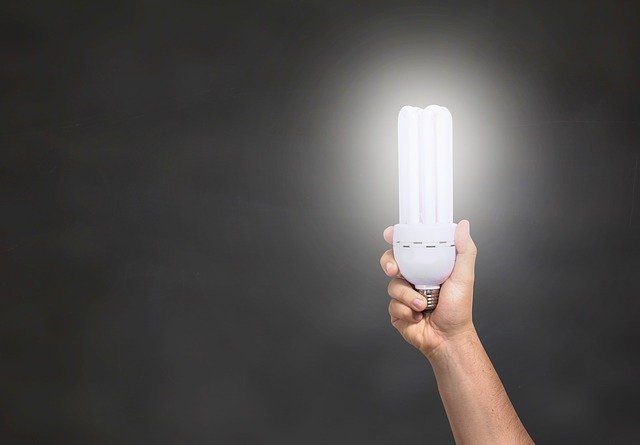

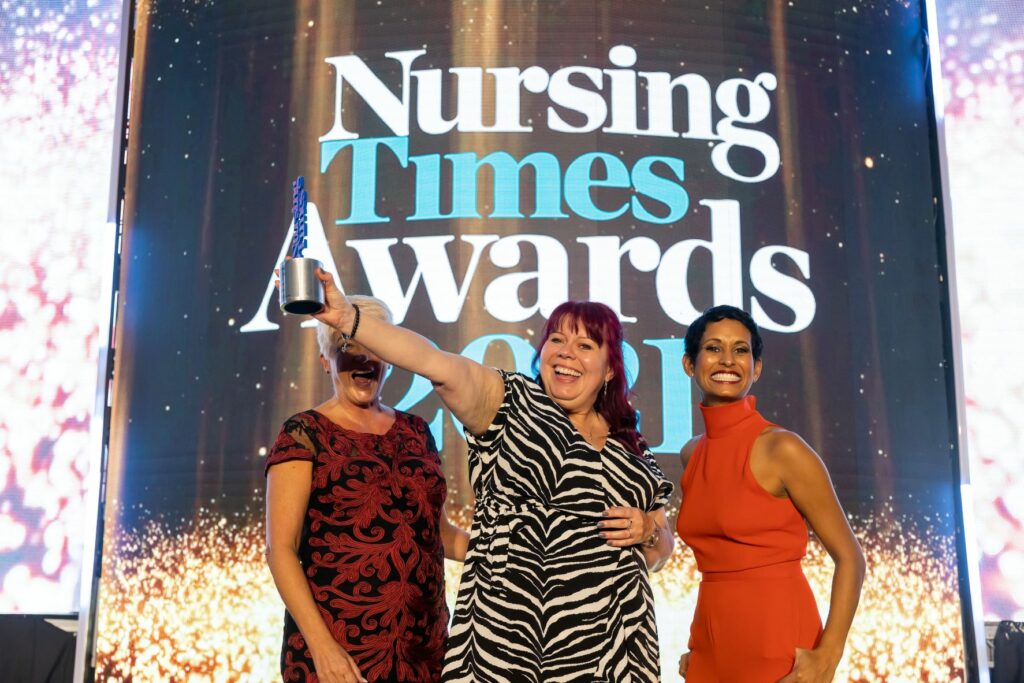
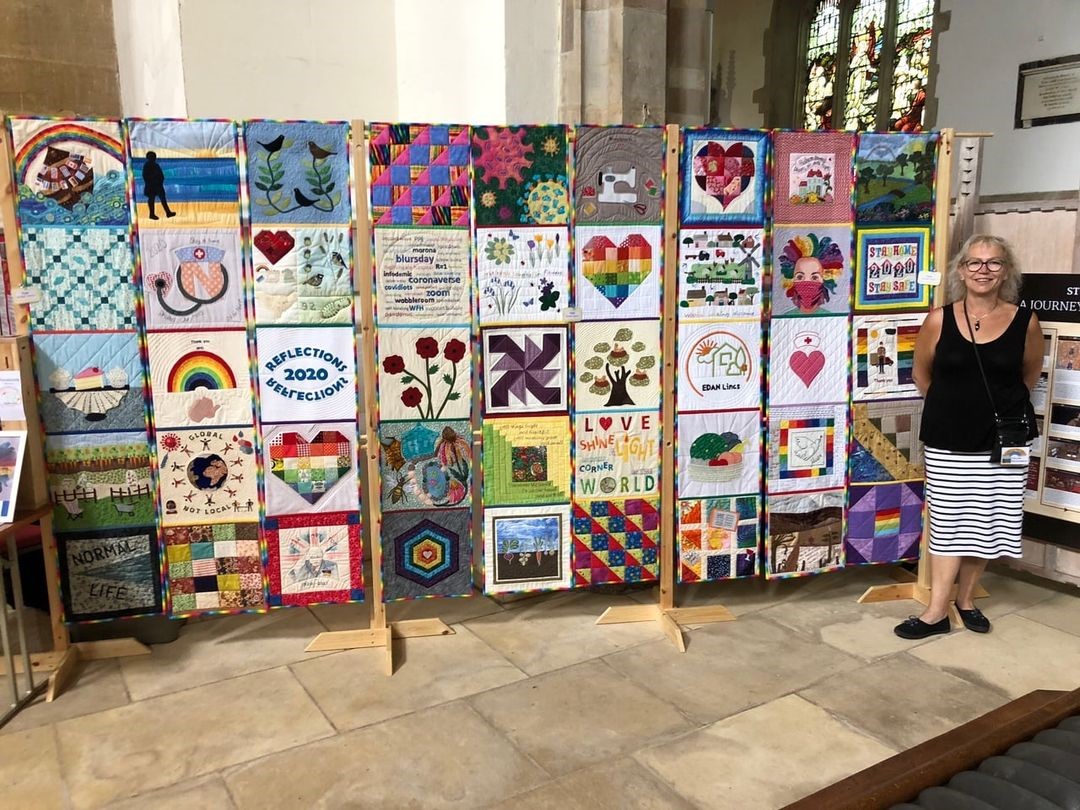
 Helen said: “My husband Paul received chemotherapy and radiotherapy treatment at the Queen’s Centre between December and January.
Helen said: “My husband Paul received chemotherapy and radiotherapy treatment at the Queen’s Centre between December and January.  “Most participants knew one person in the group, nobody knew everyone, yet all were united by their love of sewing and the desire to create something special.”
“Most participants knew one person in the group, nobody knew everyone, yet all were united by their love of sewing and the desire to create something special.”